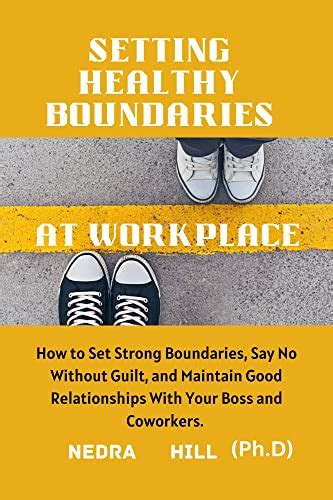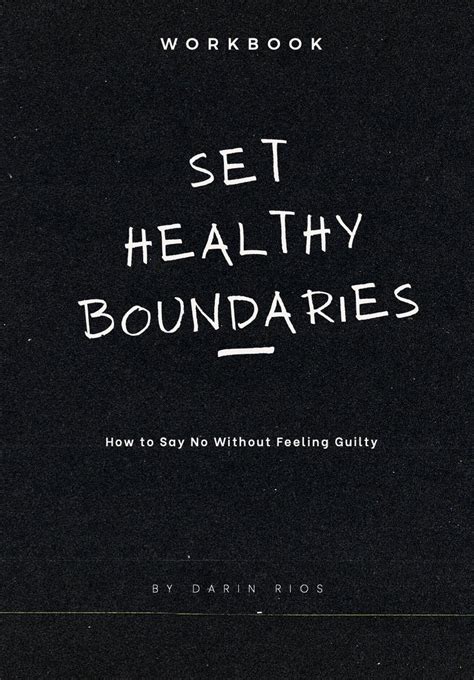Parenting is a rewarding yet challenging journey, and amidst the demands of raising children, many parents struggle with self-care guilt. This pervasive feeling can hinder emotional balance and overall well-being. In this article, we’ll delve into the concept of self-care guilt, exploring its impact on parental emotions and daily life. We’ll uncover the signs that indicate this struggle and discuss why prioritizing self-care is essential for maintaining both personal and familial harmony. By providing practical strategies and tips, we aim to help parents overcome these feelings, find a healthy balance between their responsibilities and personal needs, and ultimately foster a more emotionally balanced parenting approach.
domgiz.com will explore this topic comprehensively.
1. Introduction
Parenting is a profoundly rewarding journey, but it often comes with its own set of challenges, including the struggle with self-care guilt. Many parents experience a pervasive feeling that taking time for themselves is selfish or detrimental to their children’s well-being. This guilt can create a significant emotional burden, making it difficult to prioritize self-care despite its crucial role in maintaining balance and health. In this article, we will explore the concept of self-care guilt and its effects on parental emotions and daily life. We’ll examine the signs that indicate this struggle and highlight the importance of self-care for both parents and their families. By offering practical strategies and insights, our goal is to help parents navigate these feelings, find effective ways to balance their responsibilities with their own needs, and ultimately achieve a more emotionally balanced approach to parenting.

2. Understanding Self-Care Guilt
Self-care guilt is a common emotional challenge faced by many parents who struggle to prioritize their own well-being amidst the demands of parenting. This guilt often arises from the belief that focusing on oneself is selfish or that taking time away from parenting duties is detrimental to the child’s well-being. It can stem from societal expectations, personal values, or pressure from family and peers, leading parents to feel they are neglecting their responsibilities if they indulge in self-care activities.
Understanding self-care guilt involves recognizing its roots and acknowledging its impact on both mental and physical health. This guilt can lead to chronic stress, burnout, and decreased overall happiness. It’s essential for parents to realize that self-care is not a luxury but a necessity for maintaining emotional balance and effective parenting. By addressing and reframing these feelings, parents can better manage their emotional well-being, which ultimately benefits both themselves and their children. Identifying and challenging the underlying beliefs that fuel this guilt is a crucial step towards fostering a healthier parenting dynamic.

3. Recognizing the Signs of Self-Care Guilt
Recognizing the signs of self-care guilt is crucial for addressing and overcoming it. Common indicators include a pervasive sense of unease or discomfort when taking time for oneself, coupled with persistent thoughts that you are neglecting your parenting duties. Parents may experience feelings of anxiety or remorse after engaging in self-care activities, such as exercising, reading, or spending time alone. These feelings can manifest as self-criticism or internal dialogue that questions one’s commitment to parenting.
Other signs include physical symptoms of stress, such as insomnia, fatigue, or tension headaches, which may arise from the emotional strain of guilt. Parents might also notice a tendency to overcompensate by taking on additional responsibilities or sacrificing personal time, leading to burnout. Observing these signs and understanding their origins can help parents recognize when self-care guilt is affecting their well-being. By becoming aware of these patterns, parents can take proactive steps to address their guilt and prioritize their own needs without compromising their parenting role.

4. The Importance of Self-Care for Parents
Self-care is essential for parents, as it plays a pivotal role in maintaining both emotional and physical well-being. Prioritizing self-care allows parents to recharge and manage stress more effectively, which is crucial for sustaining their ability to care for their children. When parents take time for themselves, they are better equipped to handle the challenges of parenting with patience and resilience.
Self-care helps prevent burnout, a common issue among parents who neglect their own needs in favor of focusing solely on their children. By incorporating activities that promote relaxation, such as exercise, hobbies, or socializing, parents can enhance their overall health and well-being. This, in turn, positively impacts their relationships with their children, creating a more harmonious and supportive family environment.
Moreover, modeling self-care for children teaches them valuable lessons about the importance of taking care of oneself. It encourages them to develop healthy habits and emotional resilience. Ultimately, self-care is not a luxury but a necessity for effective parenting and long-term family happiness. Embracing this concept helps parents lead by example, demonstrating that caring for oneself is integral to being a loving and present caregiver.
5. Strategies to Overcome Self-Care Guilt
Overcoming self-care guilt involves practical strategies to balance personal needs with parenting responsibilities. First, reframe your perspective by recognizing that self-care is essential for effective parenting, not a luxury. Remind yourself that taking time for yourself benefits both you and your family by improving your overall well-being.
Set realistic boundaries and create a structured schedule that includes dedicated time for self-care. This helps in managing both parenting duties and personal time without feeling overwhelmed. Communicate openly with your family about your self-care needs and involve them in finding solutions that work for everyone.
Practice self-compassion by acknowledging that it’s okay to prioritize your own needs and that you deserve time to recharge. Address guilt feelings by journaling or talking to a supportive friend or therapist to explore and challenge these emotions.
Finally, integrate small self-care activities into your daily routine, such as short walks or mindfulness exercises. These small steps can alleviate guilt and gradually build a healthier balance between personal and parental responsibilities.
6. Balancing Parental Responsibilities and Self-Care
Balancing parental responsibilities with self-care is essential for maintaining emotional well-being and effective parenting. Start by setting clear priorities and organizing your schedule to incorporate both parenting duties and personal time. Use tools like planners or digital calendars to allocate specific time slots for self-care activities, ensuring they are part of your routine rather than sporadic.
Communicate with your family about the importance of self-care and seek their support in managing responsibilities. Sharing duties with a partner or family members can create space for personal time without compromising parenting quality. Establishing a support network of friends or extended family can also provide additional help and reduce feelings of isolation.
Learn to delegate tasks and avoid the urge to handle everything yourself. Recognize that it’s okay to ask for help and that sharing responsibilities can enhance family cohesion. Prioritize self-care activities that are feasible and sustainable, such as short relaxation sessions or hobbies that rejuvenate you.
By integrating self-care into your daily life and involving your family in this process, you can achieve a balanced approach that supports both your personal needs and effective parenting, leading to a healthier and more fulfilling family dynamic.
7. Building a Support System
Building a support system is crucial for effectively managing self-care and parental responsibilities. Start by identifying trusted individuals in your life, such as family members, friends, or neighbors, who can provide practical help and emotional support. Openly communicate your needs and how they can assist, whether it’s through occasional childcare, household tasks, or simply offering a listening ear.
Consider joining parenting groups or communities where you can share experiences and gain insights from others in similar situations. These groups can offer valuable advice, encouragement, and a sense of camaraderie.
Engage with professional resources like counselors or therapists who can help you navigate feelings of guilt and develop coping strategies. Regularly connecting with these professionals can provide ongoing support and perspective.
Lastly, don’t overlook the value of self-support strategies, such as setting personal boundaries and practicing self-compassion. Building a strong support system, both personally and professionally, can alleviate stress and make balancing self-care with parenting responsibilities more manage
8. Self-Care Practices for Emotional Balance
Incorporating self-care practices into your routine is essential for maintaining emotional balance and overall well-being. Start with simple activities that can easily fit into your daily schedule, such as mindfulness exercises or deep breathing techniques. These practices help manage stress and promote a sense of calm.
Regular physical activity, like walking, yoga, or other forms of exercise, is beneficial for both physical and mental health. Exercise releases endorphins, which can improve mood and reduce anxiety. Additionally, engaging in hobbies or interests that you enjoy can provide a much-needed mental break and enhance your overall happiness.
Ensure you get adequate sleep and maintain a healthy diet, as both are crucial for emotional stability. Establish a bedtime routine and try to stick to consistent sleep patterns to improve rest.
Finally, set aside time for relaxation and personal reflection, such as journaling or reading. These practices help you reconnect with yourself, manage emotions, and maintain a balanced perspective on both parenting and personal needs.
9. Conclusion
In conclusion, addressing and overcoming self-care guilt is vital for achieving emotional balance and effective parenting. Understanding the nature of self-care guilt and recognizing its signs allows parents to identify and address these challenges more effectively. Prioritizing self-care is not only beneficial for personal well-being but also enhances parenting quality by fostering a healthier and more resilient mindset.
Implementing strategies to manage self-care guilt, such as reframing perspectives, setting realistic boundaries, and building a support system, can significantly improve one’s ability to balance personal and parental responsibilities. Embracing self-care practices, including physical activity, relaxation techniques, and maintaining a healthy lifestyle, helps sustain emotional balance and overall health.
By integrating these approaches into daily life, parents can better navigate the complexities of parenting while ensuring their own needs are met. Remember, taking time for oneself is a crucial aspect of being an effective and nurturing parent. With a balanced approach, parents can create a harmonious family environment that supports both their well-being and their children’s growth.
domgiz.com

